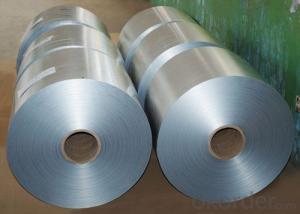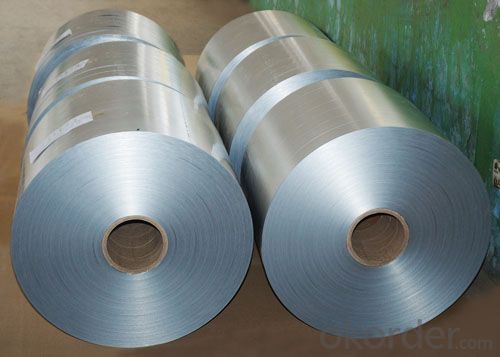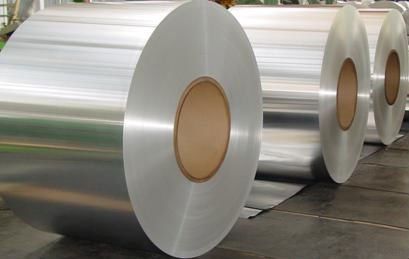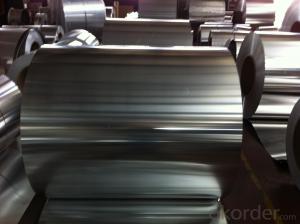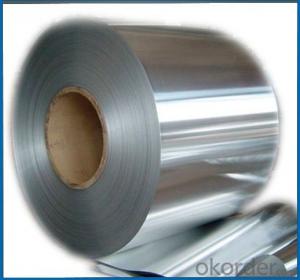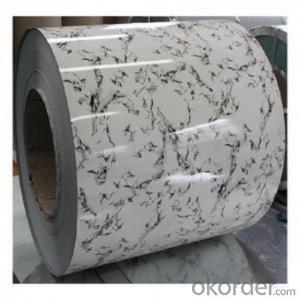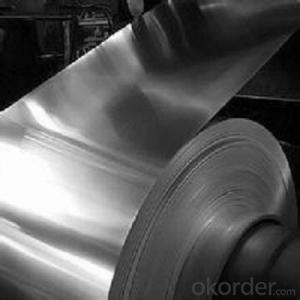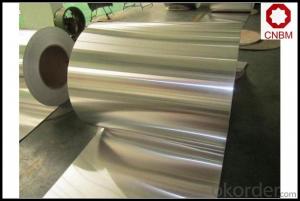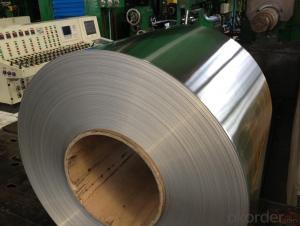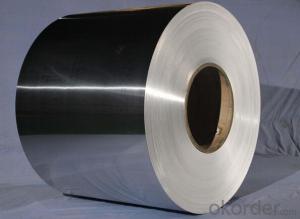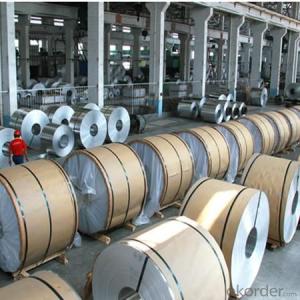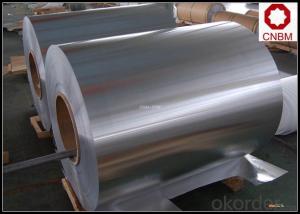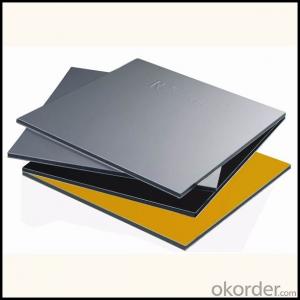Aluminum Coil Home Depot Lowe's 0.3mm-4.0mm 1100 H14 Aluminium Hardness Coils
- Loading Port:
- Shanghai
- Payment Terms:
- TT OR LC
- Min Order Qty:
- 3 m.t.
- Supply Capability:
- 5000 m.t./month
OKorder Service Pledge
Quality Product, Order Online Tracking, Timely Delivery
OKorder Financial Service
Credit Rating, Credit Services, Credit Purchasing
You Might Also Like
Specification
Grade:
1000 Series,7000 Series,3000 Series
Surface Treatment:
Coated,Embossed,Anodized,Mill Finish,Color Coated,Oxidized,Enameled Wire
Shape:
Angle,T-Profile,Flat,Rectangular
Temper:
O-H112,T351-T851,Half Hard
Application:
Decorations,Transportation Tools,Glass Wall,Kitchen Use
Technique:
DC/CC
Thickness:
0.05-4.0mm
Width:
900--1500mm
Outer Diameter:
450-600
Net Weight (kg):
2.5 ton
Packaging:
Wooden pallets
0.3mm-4.0mm 1100 H14 Aluminium Hardness Coils
Packaging & Delivery
Product Specification | |
Grade | 1000 Series: 1050 1060 1100 3000 Series: 3003 3004 3105 5000 Series: 5052 5605,5083 6000 Series: 6061 6063 8000 Series: 8011 8021 8079 |
Thickness | 0.20-8.00mm |
Width | 2400mm max. |
Grade | 1000,3000,5000,6000,8000series |
Coil ID | 75mm, 150mm, 200mm, 300mm, 400mm, 508mm or negotiable |
Coil weight | 1000-5000kgs |
Coil OD | 1700mm max. |
Temper | O, H12, H14, H16, H111, H22 ,H24, H26, H28,T4, T6,etc. |
| Temper | |
| F | processing state |
| H | strain hardening state |
| O | annealing |
| T | heat treatment state |
| H112 | pure state of strain hardening, adjustment has been made to degree of strain hardening and annealing |
| T4 | solid solution treatment and natural efficiency to achieve sufficient stability condition |
| T5 | artificial aging condition of the reentry after high temperature thermal cooling |
| T6 | artificial aging state after solid solution treatment |
Chemical Composition | |||||||||
| Grade | Si | Fe | Cu | Mn | Mg | Cr | Ni | Zn | Al |
| 1050 | 0.25 | 0.4 | 0.05 | 0.05 | 0.05 | - | - | 0.05 | 99.5 |
| 1060 | 0.25 | 0.35 | 0.05 | 0.03 | 0.03 | - | - | 0.05 | 99.6 |
| 1070 | 0.2 | 0.25 | 0.04 | 0.03 | 0.03 | - | - | 0.04 | 99.7 |
| 1100 | Si+Fe:0.95 | 0.05-0.2 | 0.05 | - | - | 0.1 | - | 99 | |
| 1200 | Si+Fe:1.00 | 0.05 | 0.05 | - | - | 0.1 | 0.05 | 99 | |
| 1235 | Si+Fe:0.65 | 0.05 | 0.05 | 0.05 | - | 0.1 | 0.06 | 99.35 | |
| 3003 | 0.6 | 0.7 | 0.05-0.2 | 1.0-1.5 | - | - | - | 0.1 | remains |
| 3004 | 0.3 | 0.7 | 0.25 | 1.0-1.5 | 0.8-1.3 | - | - | 0.25 | remains |
| 3005 | 0.6 | 0.7 | 0.25 | 1.0-1.5 | 0.20-0.6 | 0.1 | - | 0.25 | remains |
| 3105 | 0.6 | 0.7 | 0.3 | 0.30-0.8 | 0.20-0.8 | 0.2 | - | 0.4 | remains |
| 3A21 | 0.6 | 0.7 | 0.2 | 1.0-1.6 | 0.05 | - | - | 0.1 | remains |
| 5005 | 0.3 | 0.7 | 0.2 | 0.2 | 0.50-1.1 | 0.1 | - | 0.25 | remains |
| 5052 | 0.25 | 0.4 | 0.1 | 0.1 | 2.2-2.8 | 0.15-0.35 | - | 0.1 | remains |
| 5083 | 0.4 | 0.4 | 0.1 | 0.40-1.0 | 4.0-4.9 | 0.05-0.25 | - | 0.25 | remains |
| 5154 | 0.25 | 0.4 | 0.1 | 0.1 | 3.1-3.9 | 0.15-0.35 | - | 0.2 | remains |
| 5182 | 0.2 | 0.35 | 0.15 | 0.20-0.50 | 4.0-5.0 | 0.1 | - | 0.25 | remains |
| 5251 | 0.4 | 0.5 | 0.15 | 0.1-0.5 | 1.7-2.4 | 0.15 | - | 0.15 | remains |
| 5754 | 0.4 | 0.4 | 0.1 | 0.5 | 2.6-3.6 | 0.3 | - | 0.2 | remains |
| 6061 | 0.40-0.8 | 0.7 | 0.15-0.40 | 0.15 | 0.8-1.2 | 0.04-0.35 | - | 0.25 | remains |
| 6063 | 0.20-0.6 | 0.35 | 0.1 | 0.1 | 0.45-0.9 | 0.1 | - | 0.1 | remains |
| 6082 | 0.7-1.3 | 0.5 | 0.1 | 0.40-1.0 | 0.6-1.2 | 0.25 | - | 0.2 | remains |
| 6A02 | 0.50-1.2 | 0.5 | 0.20-0.6 | Or Cr0.15-0.35 | 0.45-0.9 | - | - | 0.2 | remains |
| 8011 | 0.50-0.9 | 0.6-1.0 | 0.1 | 0.2 | 0.05 | 0.05 | - | 0.1 | remains |
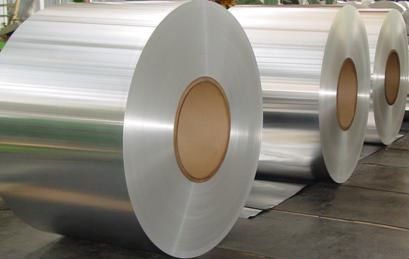
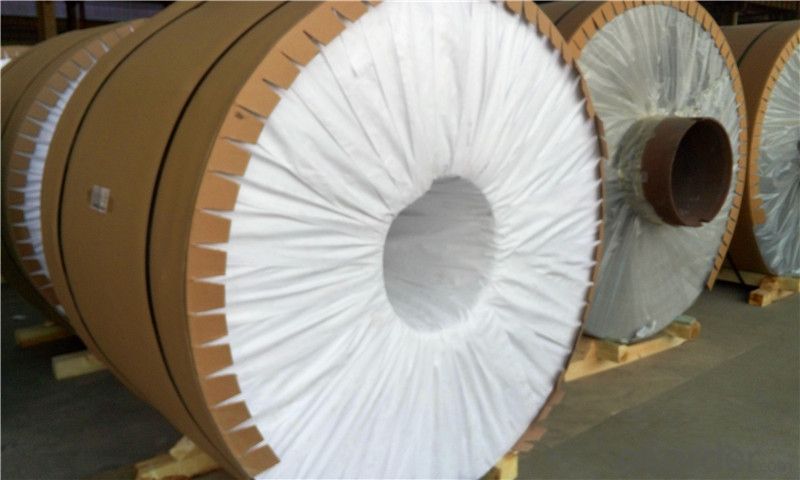
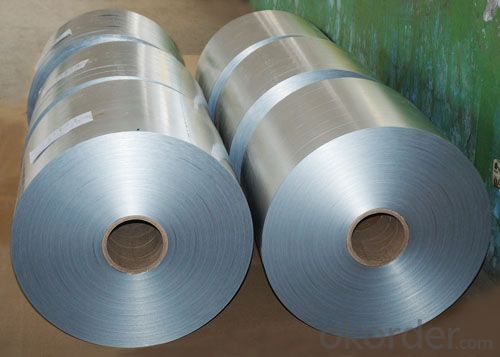
- Q: Are aluminum coils resistant to abrasion?
- Yes, aluminum coils are generally resistant to abrasion.
- Q: Are there any limitations to the maximum coil diameter of aluminum coils?
- There exist limitations on the maximum coil diameter of aluminum coils. Factors such as the type and thickness of the aluminum, the coiling equipment, and the intended application of the coil determine the maximum coil diameter. Thinner and more ductile aluminum alloys generally allow for larger coil diameters. However, maintaining the structural integrity of the coil and preventing deformation, wrinkling, or damage during handling and transportation becomes increasingly challenging as the coil diameter increases. Moreover, the coiling equipment may have its own restrictions on the maximum diameter it can handle. Hence, it is crucial to take these factors into consideration when determining the maximum coil diameter for aluminum coils.
- Q: What are the typical delivery options for aluminum coils?
- Delivery options for aluminum coils can vary depending on the supplier and customer's requirements. However, there are several common options available. 1. Direct delivery: Many suppliers offer the convenience of delivering the coils directly to the customer's location. This is particularly useful for customers who need large quantities or have limited transportation capabilities. The supplier will make arrangements for transportation, using trucks or shipping containers, to deliver the coils directly to the customer's facility. 2. Pickup from supplier: Customers also have the choice of arranging their own transportation and collecting the aluminum coils from the supplier's location. This option is often preferred by customers who are located nearby or already have their own transportation logistics in place. 3. Third-party logistics (3PL): Some suppliers collaborate with specialized logistics companies to handle the delivery of aluminum coils. These companies have expertise in transportation and offer efficient and cost-effective delivery services. Customers who prefer to outsource their logistics operations often choose this option. 4. International shipping: Customers requiring international delivery of aluminum coils have the option of using air or ocean freight. However, these methods may involve additional costs and longer delivery times due to customs clearance and transportation logistics. It's important to note that the specific delivery options may vary depending on the supplier's capabilities and the customer's location. Therefore, it is recommended to directly discuss delivery options with the supplier to ensure the most suitable and cost-effective method is chosen.
- Q: How do aluminum coils contribute to indoor air quality?
- Aluminum coils play a crucial role in maintaining and improving indoor air quality in various ways. Firstly, aluminum coils are commonly used in HVAC systems, which are responsible for heating, ventilation, and air conditioning in buildings. These coils help in the efficient transfer of heat and cooling, ensuring a comfortable indoor environment. By effectively regulating the temperature and humidity, aluminum coils help prevent the growth of mold, mildew, and other harmful microorganisms that thrive in damp and warm conditions. This, in turn, prevents the release of airborne spores and allergens that can negatively impact indoor air quality. Moreover, aluminum coils are highly resistant to corrosion and do not easily accumulate dirt, dust, or debris. This feature is crucial as dirty coils can lead to reduced airflow and inefficient cooling or heating, resulting in poor air quality. By utilizing aluminum coils, HVAC systems can maintain optimal performance, ensuring proper air circulation and filtration. This helps in removing pollutants, such as dust, pollen, pet dander, and volatile organic compounds (VOCs) from the indoor air, thus contributing to a healthier and cleaner environment. Another important aspect is that aluminum is a recyclable material, making it an environmentally friendly choice. By opting for aluminum coils in HVAC systems, we contribute to the reduction of waste and the conservation of natural resources. This aligns with sustainable practices and supports efforts to minimize the environmental impact of our indoor air conditioning systems. In summary, aluminum coils significantly contribute to indoor air quality by promoting efficient temperature and humidity control, preventing the growth of harmful microorganisms, facilitating proper air circulation, and enabling effective filtration. Additionally, their durability and recyclability make them an excellent choice for maintaining a healthy and sustainable indoor environment.
- Q: What are the disadvantages of using aluminum coils?
- One of the disadvantages of using aluminum coils is their susceptibility to corrosion. Aluminum is a reactive metal and can easily oxidize when exposed to moisture and certain chemicals, leading to corrosion and degradation of the coils over time. Additionally, aluminum coils may be more expensive compared to other coil materials such as copper, which can impact the overall cost of HVAC systems or other applications that utilize coils.
- Q: How do aluminum coils contribute to the energy efficiency of products?
- Aluminum coils contribute to the energy efficiency of products by providing excellent heat transfer properties. Their high thermal conductivity allows for efficient heat exchange, helping to cool or heat products more quickly and effectively. Additionally, aluminum coils are lightweight, which reduces the energy required for transportation and installation. The durability and corrosion resistance of aluminum also contribute to the longevity of products, reducing the need for frequent repairs or replacements, further enhancing energy efficiency.
- Q: Are aluminum pie pans and aluminum foil considered green products? They are most certainly recyclable. Thanks.?
- i would say no, because their only recycalable if they are clean. pluse the energy it takes to make them far outways the amount of times they could be re-used
- Q: What are the precautions to be taken while handling aluminum coils?
- To ensure safety and prevent potential accidents or damage, there are several precautions that should be taken when dealing with aluminum coils. First and foremost, it is essential to wear the appropriate personal protective equipment (PPE), including gloves, safety goggles, and protective clothing. This gear will help safeguard against cuts, abrasions, and exposure to chemicals. It is also crucial to handle aluminum coils with care to avoid any harm or deformation. Dropping or mishandling the coils can compromise their structural integrity and potentially lead to injuries. Furthermore, one must be mindful of the weight of the coils and employ proper lifting techniques. If the coils are too heavy to lift safely, seeking assistance or utilizing mechanical lifting equipment is imperative to prevent strain or injury. Moreover, aluminum coils should be stored and transported securely and stably. They should be placed on a flat and even surface and adequately secured to prevent any movement or rolling. During transportation, it is essential to ensure that the coils are well protected against potential damage or external forces. In addition, maintaining a clean work area, free from clutter or obstacles that may cause accidents, is of utmost importance. Any spills or leaks should be promptly cleaned up to prevent slips or falls. Lastly, it is crucial to adhere to all safety guidelines and procedures provided by the manufacturer or employer. This includes understanding the specific properties and hazards associated with aluminum coils and following any recommended handling or storage instructions. By following these precautions, individuals can minimize the risk of accidents, injuries, and damage while handling aluminum coils.
- Q: Are aluminum coils suitable for marine applications?
- Indeed, aluminum coils prove to be fitting for marine applications. As a material resistant to corrosion, aluminum becomes an ideal option for deployment in marine settings that often encounter saltwater and other forms of corrosive elements. Lightweight, long-lasting, and boasting a high strength-to-weight ratio, aluminum coils hold significance in marine applications where weight reduction is sought after. Moreover, aluminum coils exhibit resilience in the face of extreme temperatures and possess commendable thermal conductivity, rendering them suitable for diverse marine heating and cooling systems. In summary, aluminum coils enjoy popularity in marine applications owing to their corrosion resistance, durability, and lightweight attributes.
- Q: Is it possible to customize the dimensions of aluminum coils?
- Yes, it is possible to customize the dimensions of aluminum coils. Aluminum coils can be fabricated and cut to specific dimensions according to the requirements and specifications of the customer. The customization process involves precise cutting and shaping of the aluminum coil to achieve the desired dimensions. This allows for flexibility in various industries and applications where specific coil sizes are necessary. Customizing the dimensions of aluminum coils ensures that they can fit seamlessly into different production processes, machinery, or end-use applications.
Send your message to us
Aluminum Coil Home Depot Lowe's 0.3mm-4.0mm 1100 H14 Aluminium Hardness Coils
- Loading Port:
- Shanghai
- Payment Terms:
- TT OR LC
- Min Order Qty:
- 3 m.t.
- Supply Capability:
- 5000 m.t./month
OKorder Service Pledge
Quality Product, Order Online Tracking, Timely Delivery
OKorder Financial Service
Credit Rating, Credit Services, Credit Purchasing
Similar products
Hot products
Hot Searches
Related keywords
